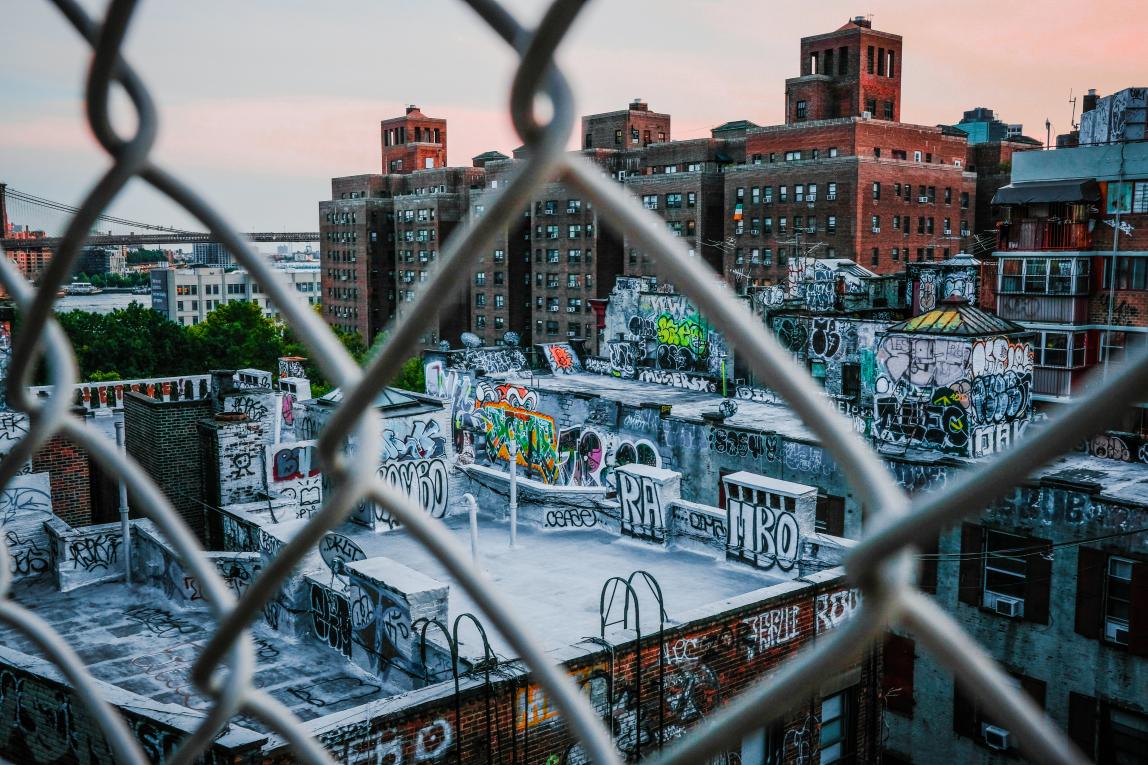
I strongly believe in the innovative power of subcultures
12/05/2023 - 09:52
- Expertise
- News
The professional doctorate (PD) is the counterpart of the PhD and is much more focused on actual interventions when it comes to complex issues in, for example Leisure, Tourism, and Hospitality.
On Monday 2 October Peter van der Aalst attended the Startconferentie Professional Doctorate – the launch of the PD programme – in The Hague. Together with colleague Samantha Boom who also started her PD in the meantime. You could read about this on this portal a while ago.
So this is a two-parter – about personal motivation and goals.
‘It’s a fantastic quest,’ Peter begins enthusiastically, ‘I really consider it my personal quest. Surely, it’s wonderful that in this national pilot I have the opportunity to do a PD programme in hbo, and, on top of that, on a subject that I enjoy reading about on a Saturday evening.’
And that is: everything that has to do with urban culture?
‘Underground culture, street culture, there are many names for it. What matters to me is that things that arise bottom-up – on the streets, so to speak – can be enormously significant to a city. In Manchester, I once graduated on the subject of independent pop industry. Underground communities have long held my interest. The fact that I can work specifically with this in my PD programme means a lot to me. I really believe in the innovative power of subcultures.’
Room for subcultures, then?
‘If you want to bind young people to you, you’ll need to keep moving as a city. This is not only my conviction; research has been carried out and investments have already been made in all kinds of initiatives in the field of urban culture. The question is what those investments specifically deliver for all parties, for the underground communities themselves and for the city. You see that initiatives are often given a place on the frayed edges of the city, and precisely through these kinds of initiatives such areas acquire meaning. Look at Skatepark Pier 15 in Breda, I mean, world championships are organised there! How can you make sure that this liveliness, that added value for the city, continues in the long term? That’s something I’m going to conduct research on.’
Where do you see a challenge, in particular?
‘Above all, I consider it a challenge to come up with interventions that can keep things in balance. How can you as a policymaker facilitate initiatives in such a way that they can continue to develop without losing their soul. Institutionalising while maintaining creativity and freedom. When breakdance became an Olympic sport – which for now, unfortunately, it seems to be only for the 2024 games, by the way – some people thought it was great and others saw it as the beginning of the end. The trick is not to frame it too much.’
That's what we should do when conducting research, right?
‘Framing? Yes, that’ll also be a challenge for sure. Fortunately, I have two experienced promoters who can help me with that; they are Greg Richards and Jeroen Klijs. I’ll definitely need it. I know from experience that everything is pretty strictly framed in municipalities, a pillar of sports, a pillar of culture, a pillar of youth work, etc. In my view, with urban culture, everything is intertwined, so you have to take an integrated approach. Although subcultures often stand alone, you’d also like to bring them together. But not right now, because I have to focus. So I’m now focusing on the value of urban culture for the development of future-proof cities. Specifically, what interventions really make a city better? My commissioners are Breda Marketing and 013 Poppodium in Tilburg, but I don't rule out making trips to other cities. If only to gather evidence.’
How do you envision it? The whole PD process?
‘Practically, you mean? It will be a doctoral programme of about five years. That will give me enough time to implement interventions and to investigate whether it really works. I get 3.5 days a week for it. I’ll continue to spend the rest of my time on my management duties at Leisure & Events and teaching in the Master Strategic Events Management. The whole PD thing in hbo is a pilot, so many things are not really set in stone yet. That searching for an appropriate form suits me fine. I’m also looking forward to writing; I like that. Especially about a subject as beautiful as this one.’
What makes it so valuable to you?
‘I’m coming back to breakdance for a moment. For a break contest you don't actually need much, especially not expensive stuff. It is easily accessible, everyone can join in, move around and show off their skills. In addition, young people from different neighbourhoods come together who otherwise would never find each other. It’s very valuable for me if – with my research and my interventions – I can shortly contribute something to these kinds of goals, inclusion, health, creativity, social cohesion, and thus to cool cities for everyone. I already have lots of ideas about it and now I can actually go and see if it works!’
Interview by Maaike Dukker 't Hart